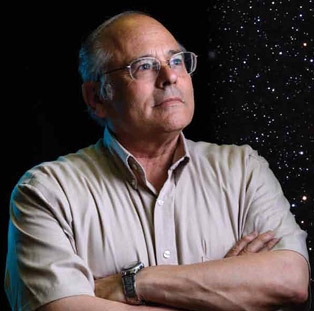Message for Rosh Hashanah
Rav Ashi was one of the two editors of the Babylonian Talmud—clearly a man of tremendous stature. The Talmud (Sanhedrin 102b) records that in his dream Rav Ashi engaged the Judean King Menashe in a halachic discussion. Menashe showed himself as Rav Ashi's superior—in spite of Menashe's fame as one of the most disreputable kings in Jewish history. Duly impressed by Menashe's intelligence, Rav Ashi asks him why he worshipped idols. To which Menashe responds by saying, "Had you been there, you too would have lifted the hems of your robes to run behind me (to worship idols)."
According to Rabbi Francis Nataf (www.francisnataf.com/ideas-47.html), Menashe's challenge goes well beyond the issue of idol worship. Menashe is invoking the tremendous impact of society on one's behavior. He is saying that even a man of Rav Ashi's stature could have fallen prey to the social currents favoring idol worship, had he lived in Menashe's time. If Rav Ashi can succumb to the pressures of idol worship, can we be surprised when fellow Jews succumb to the fashionable currents of our own culture? Whether it be materialism, hedonism, or atheism, can we expect it to be any other way?
Nevertheless, the Talmud does not exonerate Menashe from his sin of idol worship, despite the societal influences that contributed to his behavior. The Talmud seems to assert that man can—to some extent—rise above history and not be shaped by it. That is not to say that the gravity of the sin is not to some extent mitigated because of the societal influences. However, the sin remains quite serious, nevertheless. Simply put, G-d expects of us to resist incorrect or immoral cultural trends.
It is not enough to simply look at religious society or its leaders and say that we will follow what they say. At several points in history, Jewish society and its leadership made mistakes. It is obviously helpful to live in communities which reinforce our religious ethical behavior. For this reason, it is a good idea to live in dynamic thoughtful communities that have high religious and moral standards. Such communities often create social pressure to do the right thing. It is not, however, a panacea. For at the end of the day, we are held personally accountable for our misdeeds, and cannot say, "But everyone else did it."
Indeed, Menashe's challenge is one of the most demanding expectations put on a Jew. It means really thinking for ourselves. It means, deciding how much of our behavior is motivated by doing "what everyone else is doing." We have to ask ourselves to what extent we would be able to maintain our religious practices and beliefs were we to live in a neutral or antagonistic community. Albeit a hard question to answer, it is not something we can ignore.
The English poet, John Donne, was correct when he asserted that no man is an island. We will continue to be influenced by the society within which we live. That is to be expected. Within some parameters, however, Jews need to do more than what is expected. This is perhaps the message of our sages, when they tell us to ask ourselves, "When will my actions reach the actions of my forefathers, Avraham, Yitzchak, and Ya'akov?" (Tanna deBei Eliyahu 25) The sages do not mention other great Jews here, because they all had a Jewish society to help reinforce their greatness. Not so with the Avot—our forefathers. They were individuals whose greatness was marked by determining their own behavior, independently of a completely antagonistic culture. As such, they could truly claim their actions to be their own. We should, indeed, ask ourselves: when will my actions truly be mine?
During the High Holidays and the coming year 5779—may we find the strength to meet Menashe's challenge.
Rabbi Dr. Aryeh A. Frimer is the Ethel and David Resnick Professor of Active Oxygen Chemistry at Bar Ilan University. Email: This email address is being protected from spambots. You need JavaScript enabled to view it..








Comments